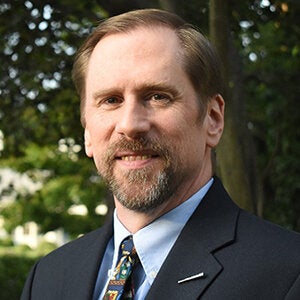For more information:
Email UsGoals
- Understand the foundational principles of project management.
- Explore how project management principles and strategies can influence your work with colleagues and stakeholders on various projects.
Managing projects is a detailed and systematic process. Yet, the applications of this process vary across disciplines and teams. This webinar series will introduce how to troubleshoot, forecast, and problem solve using project management in various contexts while considering how these elements impact the work of teams. Each of the four independent sessions will be led by David Vincenti, PMP, a certified project management professional. This series will identify the principles of project management and how to apply templates and skills to your work and experiences in team settings. The last session will feature a panel of guest speakers who utilize successful project management strategies in their respective roles and professions. Those without official training in this area will gain skills and confidence in project management during this series.
Meet the Presenter
 David Vincenti, PMP, is a project manager and engineer with more than 30 years of experience in the medical device industry. In his corporate career, the projects he managed led to the successful development and commercialization of medical and diagnostic technologies, integration and divestiture of global businesses, and implementation of job and organization redesign. Vincenti has presented to academic and professional audiences on topics including project management, team leadership, and interview skills, and has been recognized for his work with early-career technical professionals. He holds degrees in materials engineering and technology management from Stevens Institute of Technology and is an adjunct professor of communications and project management.
David Vincenti, PMP, is a project manager and engineer with more than 30 years of experience in the medical device industry. In his corporate career, the projects he managed led to the successful development and commercialization of medical and diagnostic technologies, integration and divestiture of global businesses, and implementation of job and organization redesign. Vincenti has presented to academic and professional audiences on topics including project management, team leadership, and interview skills, and has been recognized for his work with early-career technical professionals. He holds degrees in materials engineering and technology management from Stevens Institute of Technology and is an adjunct professor of communications and project management.
Meet the Panelists
Please check back soon for panelist information.
Session dates
Session 1: Defining the Work
March 18, 2026 | 12:00pm ET
Registration deadline: March 17, 2026 | 12:00pm ET
This session introduces basic project management principles. You will learn the definition of a project, how to manage project scope, and how to draft the baseline of a project while considering how projects can be connected.
Session 2: Creating the Plan
March 20, 2026 | 12:00pm ET
Registration deadline: March 19, 2026 | 12:00pm ET
In this session, you will learn to apply project planning terms and understand how to break a project into manageable parts, sequence tasks, and manage time while considering how these components affect your work and the work of your team members.
Session 3: Finalizing the Plan
March 25, 2026 | 12:00pm ET
Registration deadline: March 24, 2026 | 12:00pm ET
In this session, you will explore project management principles further by calculating risks, managing a process, reviewing a project plan, and forecasting the execution and completion of a project while considering how these elements impact your work and the work of your team members.
Session 4: Panel Discussion
March 27, 2026 | 12:00pm ET
Registration deadline: March 26, 2026 | 12:00pm ET
This final session features a panel discussion with successful project management practitioners. The panelists will share their experiences in their respective roles and professions, and discuss how they engage in project management work within team settings.
Time commitment
One-hour sessions on Zoom.
Audience
This series is designed for team members in the clinical and translational (c/t) workforce who are familiar with project management, but have no formal training. Attendees are welcome to attend on their own or with their team members.
We believe that the research community is strengthened by understanding how a number of factors including gender identity, sexual orientation, race and ethnicity, socioeconomic status, culture, religion, national origin, language, disability, and age shape the environment in which we live and work, affect each of our personal identities, and impacts all areas of human health.
Eligibility
There are no eligibility requirements. Prior session attendees have included: faculty, research scientists, postdoctoral fellows, research fellows, project managers, research assistants, research coordinators, medical students, and more.

